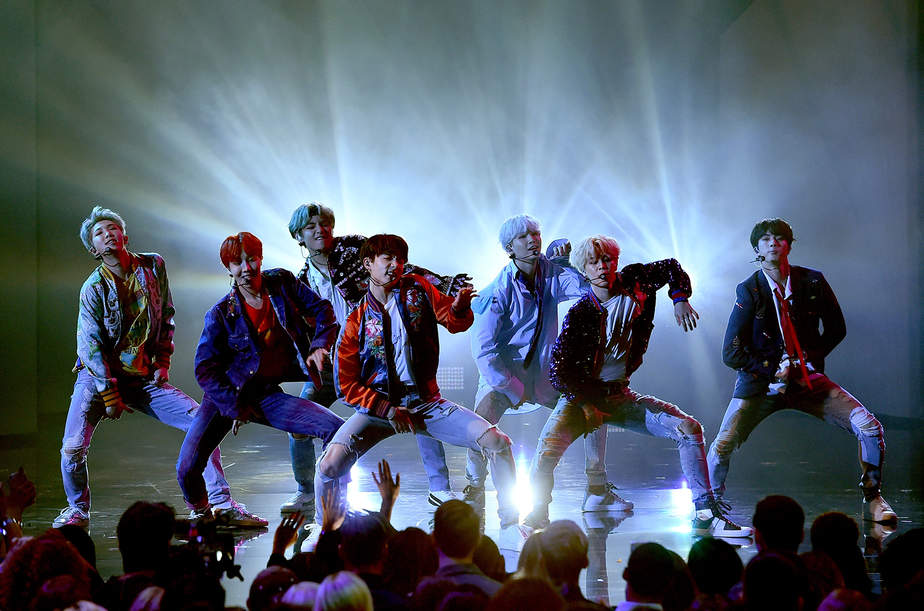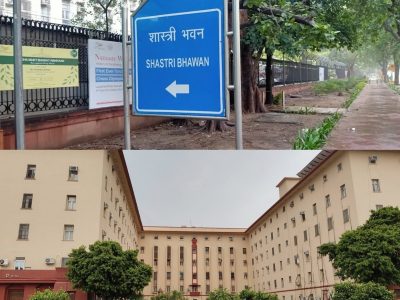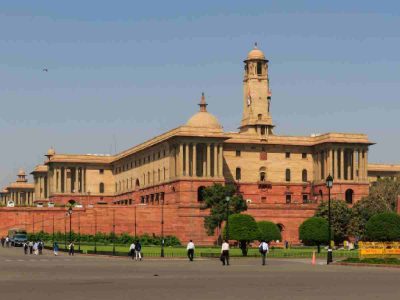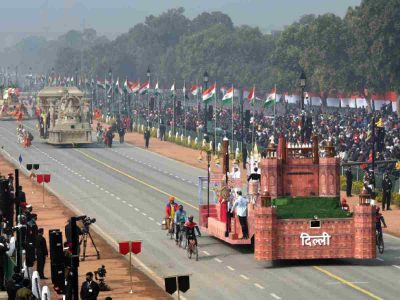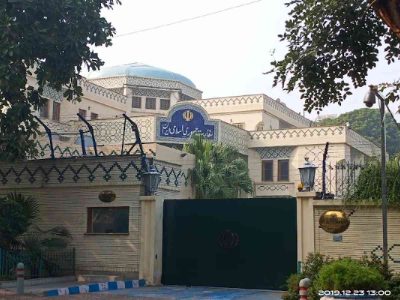Korean pop is taking the world by storm with its dance, fashion, music and India is no exception
New Delhi: “There’s this thing about K-Pop, once you’re into it there’s no going back,” says Erika Lepcha excitedly. The 22-year-old is one among the several young Indians who have been captured by the craze of Korean Pop.
Korean Pop aka K-pop, a genre of music from South Korea, is quite a sensation in India. Marked with flawless choreography and high budget videos, it has created a subculture of its own. The Hallyu Wave (flow of Korea) was introduced to all the uninitiated by Gangnam Style, which went viral back in 2012.
A K-pop song is a blend of several genres — electronic, hip hop, pop, rock, rap and R&B. Accompanied by immaculately choregraphed dance routines and eye-catching costumes, it always tops the I-tune India charts with each new release.
A K-pop fan today knows every little detail about the bands and artists known as ‘idols’. Knowing the lyrics by heart or having Korean songs in the playlist is just the beginning. From the history and likes and dislikes of the idol, to the current political relation of Korea with other nations — a fan knows it all. Also,the fan base is not just restricted to teenagers.
“K-pop provides an escape route from the daily frustrations of life” says Anisha De, a post graduate student and a K-pop fan for more than six years now. What appeals to her most is that regardless of the fact that she doesn’t understand the language, she experiences the emotions conveyed by the songs.

“The K-pop craze in India mainly started in the north-east regions. Channels like Arirang TV and KBS World, along with the availability of pirated CDs, made Korean music and dramas easily accessible to the people of the region” says Vilina, one of the founders of Pink Box Events. A team of four, Pink Box Events organises events, concerts and fan meetings related to Korea in India. Working closely with Korean Cultural Centre they have organized three fan meets and several other mini concerts across the country. It’s not just restricted to regions now. Cities like Delhi, Mumbai, Bangalore has a huge number of K-pop fans,” she explains.
According to Vilina, it takes years of practice and training to gain recognition as an idol group. “The music and the dance moves require a lot of skill along with perfection and this draws the fans towards them. What is different with Korean music is that they make music for their fans. It’s the fan interaction, fashion and music all combined.”
Social media has changed the dynamics of fandom practices. K-pop idols are very active in social media which keeps their fans increasingly invested in their lives. K-pop groups have dedicated fan groups and a fandom names that creates a personal bond among the fans.
Tashee, the admin of Got7 (a seven-member boy group) Indian fan page, states that the fan base has been steadily increasing in the past few months. They hold special streaming projects and birthday projects for all the members of Got7.
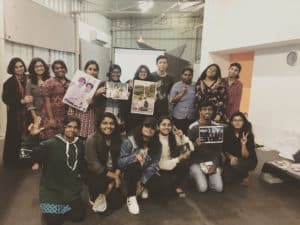
In March 2017, a birthday project was organized for a member of Got7, a first of its kind in India. The fans printed out a banner for the artist or idols and contacted Korean Cultural Centre India in Delhi to put it on the façade of the building. This event was covered by Koreaboo, a website for South Korean entertainment, which inspired them to come up with such other birthday projects. They even came up with other such innovative projects. For instance, to celebrate one of the artist’s birthday they bought a star and named it after him. Celebrating the fourth debut anniversary of Got7, they organised an open k-pop dance meet-up in Kolkata. “This year we are concentrating more on voting for our idols to win several music programs by purchasing passes from Korea,” adds Tashee. Not only these, the fan projects also involve several charity and social works like planting 100 trees in South India, raising money for orphanages, and distributing 175 packets of sanitary napkins to the underprivileged.
Another group, EXO, one of the most popular idol boy group of Korea has a huge fan base in India. With over 13,000 Indian followers on Twitter, the EXO-Ls (official name of the fandom) have participated in several mass streaming and other fan projects. From last year, they have started with a project called ‘Miracles of December’ named after one of Exo’s songs where all the concerts of EXO are screened in various cities across the country in the month of December. This began with the Manipur EXO-Ls where they booked a whole theatre to screen the latest concerts.
To celebrate the anniversary of EXO, the fans had donated Rs 58,000 to an NGO in Mumbai. They also donated to a blind school in the name of one of the idol. “We try to give back to the society as much as we can, but everything under EXO’S name,” says Ritika Maitra, admin of EXO-L India. The fans also have regular interactions via social media with the global fandom and participate in the global fan projects. “We have contributed to the Exo Global Centre food truck as a part of the Exo global fan union which has more than 40 countries.”
“A lot of fans are judged even today and are often subjected to the same question as to how can they like something they cannot understand . However, more and more people are opening up to exploring different types of music” says Ritika.
What sets apart Korean pop from western pop are their captivating choreographies, costumes and concepts of the videos. Teenagers find groups like BTS and Big Bang relatable as they deal with themes like youth, societal pressure and depression.
Starting from 2012, the Korean Cultural Centre India has been organizing an annual Changwon K-pop World Festival, a preliminary round held in around 70 countries for the final stage in South Korea. With only a handful of participants initially, now it has grown exponentially with each new edition. This year more than 500 teams had registered and it was held across 11 cities before the finals in New Delhi. The auditoriums were so crowded that it seemed like a concert arena. The competition saw participants from the northeast only in the beginning but gradually its popularity grew in other parts of the country as well. Last year a seven-member boy group from Mizoram called Immortals Army won the best dance performance award at the grand finale in Korea.
Beating pop artists like Justin Bieber, ‘BTS’, another boy group of Korea has grabbed the Billboard Music Award in the social media category. The craze behind K-Pop goes far beyond the catchy beats and its music. It is a world in itself with the idols at the center and the lives of the fans revolving around it.

